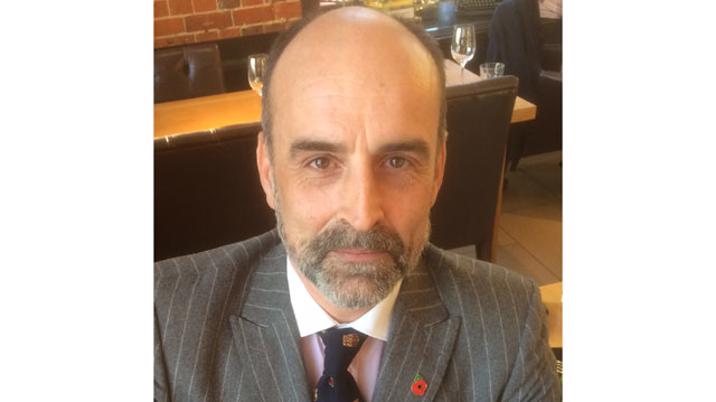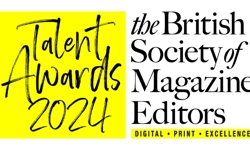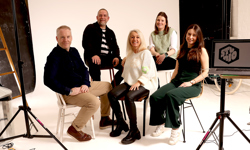
You could be forgiven for thinking that Matt Kelly has the best media job in Britain.
He’s the editor of The New European, a printed weekly national newspaper which surprised the publishing world with its ballsy launch just after the 2016 EU referendum.
It was called a ‘pop-up publication’, with an initial plan to last just four weeks. But it’s now approaching its 30th edition, with a niche but loyal readership of around 21,000, and has attracted laudable analysis from media-watchers across the UK, Europe and America.
Don’t get too jealous of Kelly, though. Away from the glitz and international fame of The New European, he’s also chief content officer of Archant, which publishes four daily titles – the Evening News (Norwich), the Ipswich Star, the Eastern Daily Press and the East Anglian Daily Times – and around 50 local weekly titles, as well as about 80 consumer and contract magazines.
In mid-2016, this saw him having to axe around 30 photographers’ roles. Then, in November, Kelly headed a structural shake-up of the company’s titles that will mean nearly 60 redundancies (although there might be 40 new jobs created by the same project).
Audience-first strategy
Kelly calls this latest plan ‘audience-first’, separating design and production from content creation, with a centralised unit in Norwich responsible for outputting all print titles, while news rooms publish directly to the web.
When we meet, I jibe that a more accurate name might be ‘centralised subbing’. “No,” Kelly retorts, claiming that centralised subbing has been around at Archant “for a long time”. Instead, he says, ‘audience-first’ is about content-creating journalists putting their efforts into “what really matters” – the readers.
“I don’t want newspaper editors spending a disproportionate amount of time worrying about a print platform that’s in long-term decline. I want them to spend more time thinking about the audience and great content.”
But isn’t ‘audience-first’ just another version of ‘digital-first’, a change process that Trinity Mirror, the UK’s largest newspaper publisher, has been enacting for years?
“No,” Kelly corrects me again, insisting that ‘digital-first’ is “to the detriment of the newspaper”, whereas ‘audience-first’ is about “how we can best engage readers wherever they are”. This, he emphasises, includes newspapers, which is “still bringing home the bacon”.
Kelly’s touchiness was reflected in his document that announced the changes. He referred to media companies who “relegate their printed products to the margins of their business in so-called ‘digital-first’ strategies”, saying they “often pay a price in accelerated circulation declines” and “a worrying decline in the standards of journalism”.
To many observers, this was an open dig at Trinity Mirror, so why does he think his approach is better? “Our ‘audience-first’ approach broadens teams, because the future’s not just about the web, it’s about interesting communities, bringing people into much more community platforms – in print and online. It’s about co-opting content that’s free to you but of massive engagement to the audience.”
Kelly cites ‘books’ as an example: “Traditionally, you had reviews of books by a books editor. But what I want is 1,000 opinions and recommendations, more content than a single books editor can ever hope to provide. Our communities already have that content – there are hundreds of book clubs out there. How brilliant would it be to bring all that together?”
Need for recalibration
Journalists, Kelly says, need to “recalibrate” to be more aware of what captures audiences, and more willing to “inspire and collate” as well as create their own content.
“We need to challenge some of what our journalists are taught. Conversations we thought readers were having are wholly different to what we’ve been relentlessly shoving down their throats. Take mixed martial arts – sports editors might laugh and say: ‘That’s not a real sport’. Do you know it’s much more popular than boxing? But because journalists don’t believe it’s a real sport, it doesn’t get the same coverage.”
We discuss the revenue split between print and digital, with online worth anything from 6% to 17%, depending on who you talk to at which publisher. Kelly nods his head, conceding that Archant’s digital revenues are somewhere “in the middle” of that range. It’s why he thinks Trinity Mirror is wrong to hang so much on ‘digital-first’.
Yes, content-creating journalists must drop the “newspaper blinkers”, Kelly says. But the company must still develop, nurture and invest in print as well as digital.
“It’s about understanding what readers are interested in, and taking great care to give it to them, when they want it. Audiences want new content at breakfast, lunch and teatime, and so we’ve got to reorganise ourselves. Websites that don’t change from 6am to 6pm look the same because they’re mimicking the workflows of newspapers.
“The answer is to become the number one in our communities. If we’re not, we’re nothing and will be beaten by the likes of Facebook. As it is, we’ve got brand equity, we’ve got journalists on the ground, we’ve got the feel of the community, and we can beat Facebook in our communities.
“I really think that’s possible for a Norfolk hub three times a day. That’s genuinely a powerful, lucrative platform. But to do that, we’ve got to change. How can we inculcate that in our content and platforms? We need to be much deeper into what’s wanted to retain that ‘number one’ position.
Strong communities
“East Anglia is a really good place for us to start. It has a great sense of identity, big communities of people who feel very passionate about this area. It’s a great opportunity. But it’s also a wholescale challenge.”
Kelly has renamed news rooms as ‘content rooms’, which he admits makes him “wince as a news room guy”. But he’s making a point: “News is not the only game in town. Understanding what content our audience want – and what content they can help provide – is crucial.
“We need digital literacy and the latest tools to enable journalists to easily and enjoyably create content that goes online but also falls into improved newspapers. That’s another big step for us, redesigning newspapers that are easier to produce. For example, they’ll have slightly longer headlines so that they fit print and online. And they’ll have no headlines at all for stories under 150 words – which is when Google[’s search engines] ignore content. It’s crucial our people feel like the structure’s designed to deal with stories efficiently and brilliantly.
“But the real trick is that the quality of journalism is not compromised by these changes. Journalists will feel liberated from that traditional demand for ‘two page leads and a flight of fillers’. Instead they’ll cover stories and create content in the best way they can, including elements of curation.
“We’ll end up with a smaller but better-paid workforce, more responsible and accountable, less hierarchical, taking out layers of newspaper process. Allowing people to cover their subject as deeply as possible without being consumed by the tyranny of print.
“We’d got into a habit of feeling a story was a story simply because it was from courts or council. We need to ask: ‘How do I make this important to the community?’ We need to give journalists more time to have those thoughts and conversations.”
Career path
Kelly’s career started with Trinity Mirror, on one of the group’s Merseyside titles, and by the late 1990s he’d established himself in London as a trusted lieutenant of then Daily Mirror editor Piers Morgan. He went on to lead the Mirror’s first online excursions, including 3am.co.uk and MirrorFootball.co.uk, before leaving to work elsewhere.
When InPublishing last interviewed Kelly in spring 2015, he was digital director at Local World, another regional publisher. He left just before Trinity Mirror swallowed Local World for £220 million in late 2015, quickly unpicking various initiatives Kelly had poured his heart into.
He tries not to openly criticise, but it’s clear that Trinity Mirror’s changes grate with Kelly: “They’ve got a different model to the one I’m interested in. We look from local up, whereas Trinity Mirror look from national down.”
Kelly cites what happened to one of his pet projects, oneMK. This was a Local World rebranding of MK News, a weekly newspaper in Milton Keynes, aligning it with its digital brand. The paper would be “bigger and better”, with more user-generated content, allowing community groups to upload their own copy. But shortly after taking over Local World, Trinity Mirror closed oneMK.
“This was a great experiment that we’d spent loads of time developing,” laments Kelly, “bringing different, complex and tortuous platforms together. It was extraordinary, and cost a fortune in its birth. But it didn’t feature in Trinity Mirror’s ‘digital-first’ strategy, and so just as it was ready, they pulled the plug before anyone could see how it worked. That was disappointing.”
But he also praises his old company: “I love what they’re doing with data journalism, and I’ve got huge respect for people like David Higgerson [a digital editorial chief at Trinity Mirror]; he really stands out.”
The New European – print first
Kelly’s much more comfortable talking about his new baby, The New European: “Ah, the romance of print!” On its best weeks, the paper’s enjoyed sales higher than 40,000, although its average is now around 21,000 copies.
“The print format was very important for the start. There’s no way we’d have done it if we were ‘digital-first’ – it’d have been a website, and that would’ve been a mistake. No-one would’ve wanted to write for it or read it. It’s why ‘audience-first’ is a better approach. Could it now migrate to digital? Perhaps, and we’re looking at that. But it could never have established that audience in digital.”
He clearly loves it, but Kelly predicts the paper will close: “It currently makes money. But when will people go? When will it stop being a novelty? When will we lose the zeitgeist? I’m quite certain that it will get killed in print, probably sooner than its fans would like. But I could be wrong. It’s already defied our greatest expectations. We’ll carry on for as long as it’s interesting, and then we’ll stop. It’s still interesting at the moment.”
The New European has attracted huge think-pieces from numerous big-name writers, ranging from Jonathan Freedland to Tony Blair, and from Alastair Campbell to Bonnie Greer. Kelly says: “It’s a ‘bedside’ not a ‘bin’ paper, it can last three or four days. That’s a lesson in itself. Today, in the digital age, we all shy away from big, meaty content, but in print, it’s vital.”
Aren’t Archant’s other editors and journalists annoyed when Kelly tells them: ‘Spend less time with your newspaper’, while he continues enjoying himself in print?
“Yes, it’s massively hypocritical,” he agrees. “I’ve great sympathy with what other editors might be feeling. If someone told me I couldn’t do the nuts and bolts of The New European, I’d tell them to jump off a cliff!
“But that’s because establishing the brand in print is so important – the look and feel and design. If it lasted a long time, you wouldn’t need to spend hours and hours. Things become more fixed. I understand editors who like producing newspapers. It’s what turns us on. But this is where we’ve got to be really professional, to appraise objectively.
“How much time to we need to spend on fiddly crops of pictures, deciding positions for every inside page-lead and nib? Our time is better spent doing something special, interesting the audience better. Yes, I’m having my cake and eating it now, but that won’t go on forever.”












